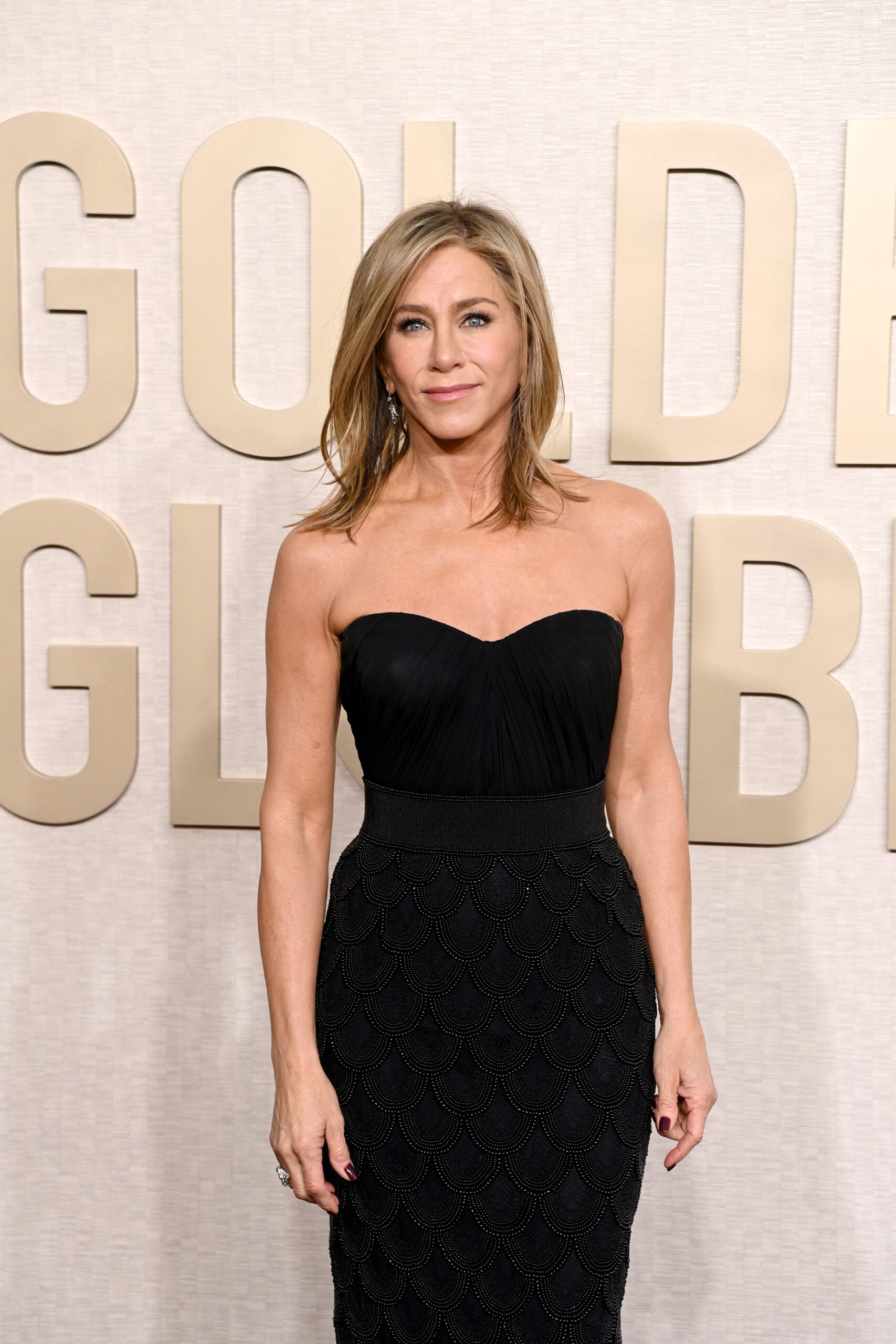The Jennifer Aniston scam – ‘I got conned out of hundreds’
Aniston is the latest celebrity to be involved in a major deepfake scam.
Words by Daisy Hall

Would you help out a celeb in need if they asked you to? Paul Davies from Southampton certainly would. In fact, he thought he had.
The latest victim of deepfake fraud, Paul, 43, sent a scammer pretending to be Friends actress Jennifer Aniston £200 worth of non-refundable Apple gift cards after they requested them on social media in order to pay for their ‘Apple subscriptions’.
The Brit revealed that he’s received multiple clips and photos of seeming celebrities recently, but fell for the Jennifer Aniston scam when she appeared to send him her driving licence as proof of her identity.
In the message exchange between Paul and the scammer, the fake Jennifer Aniston sends pictures saying things like, ‘What time will you send it to me my love’ and ‘Are you there my love’. Hoping to educate other people on the rise of deepfake scams, he told The Sun, ‘I’ve had fake videos from Jennifer Aniston saying she loves me and asking for £200. I believed it – and I paid. I got bitten. Once bitten, twice shy.’
He continued, ‘They make it look so real. It’s been going on for five months. I thought someone would get in trouble for this, but they seem to be having a laugh… and getting away with it.’

He isn’t the only one. Earlier this year, it was revealed that a French woman was conned out of £700,000 by someone impersonating actor Brad Pitt.
After the scammer got in touch with her via social media, the 53-year-old woman became convinced that she was sending the actor – who she believed that she had entered into a romantic relationship with – money for cancer treatment. The scammer backed up their story by going so far as to send her faked images of the World War Z actor in a hospital bed, where he was supposedly undergoing treatment for kidney cancer.
Eventually the woman realised what was going on when she saw pictures of the real Brad Pitt on holiday with his girlfriend Ines de Ramon. Explaining why she had fallen for the scam in an interview with French broadcaster TF1 she admitted, ‘There are few men who write to you like that. I loved the man I was talking to. He knew how to talk to women and it was very well put together.
We’re talking about Brad Pitt here and I was stunned. At first, I thought it was fake, but I didn’t really understand what was happening to me.’
After the real Brad Pitt learned of the scam a spokesperson for the actor said, ‘It’s awful that scammers take advantage of the strong bond between fans and celebrities. This is an important reminder not to respond to unsolicited online messages, especially from actors who are not present on social networks.’
Scarlett Johansson – who is currently starring in Jurassic World Rebirth – has also called out the misuse of AI after a deepfake video was circulated in February 2025. The video seemingly showed her and other deepfaked celebrities including David Schwimmer, Jerry Seinfeld, Steven Spielberg, Adam Sandler, Sacha Baron Cohen, Natalie Portman and Lenny Kravitz calling out Kanye West’s antisemitic comments.
‘we risk losing a hold on reality.’
In a statement Scarlett, 40, said, ‘It has been brought to my attention by family members and friends, that an AI-generated video featuring my likeness, in response to an antisemitic view, has been circulating online and gaining traction. I am a Jewish woman who has no tolerance for antisemitism or hate speech of any kind. But I also firmly believe that the potential for hate speech multiplied by AI is a far greater threat than any one person who takes accountability for it. We must call out the misuse of AI, no matter its messaging, or we risk losing a hold on reality.’
Currently it is difficult to legally challenge deepfake images, but legislation is starting to be introduced around the world. Indeed, a bill introduced in America requires ‘generative artificial intelligence to disclose that their output has been generated by artificial intelligence’.
But James Grimmelmann – a Tech and Law professor at Cornell University – says more needs to be done. ‘Deepfaking specific actors for use in commercially distributed films is probably a right of publicity violation’, he explains. ‘The right of publicity doesn’t apply to private non-commercial uses. Where it becomes illegal is when it’s commercially exploited.
‘It’s unethical to pass off a deepfake as an actual video; that’s a kind of lying. It’s more ethically ambiguous when the deepfake is acknowledged to be one, because this gets at hard and contested questions about how much we ought to be able to control how other people think about and talk about us.’
He concluded, ‘Celebrities cannot avoid it. There are too many photos and videos of them already available, and their jobs basically require them to be publicly visible.’
Photos: Getty

